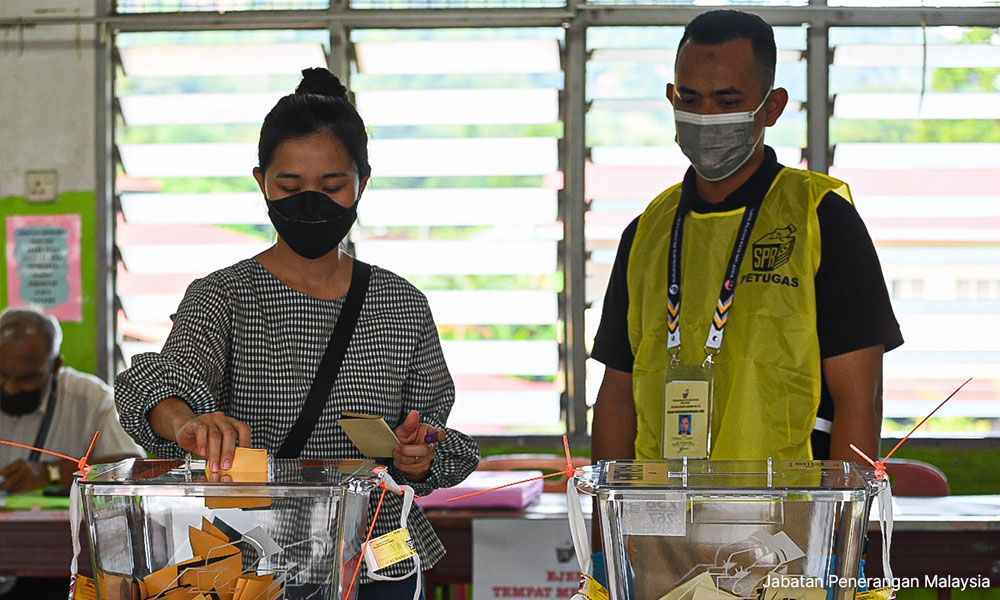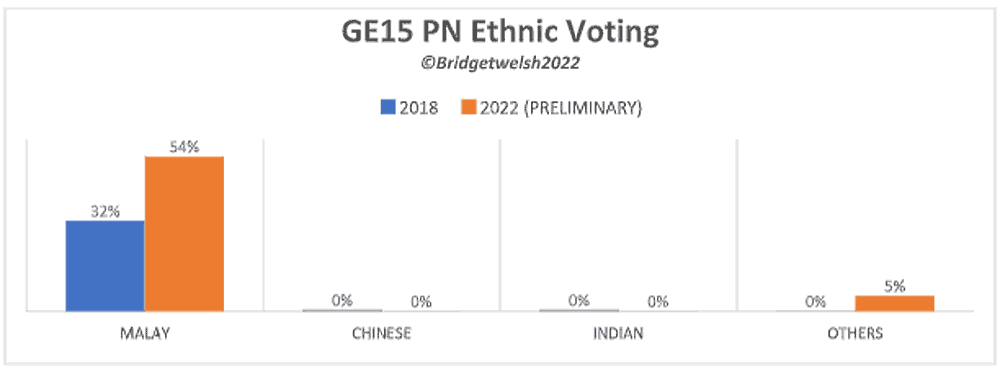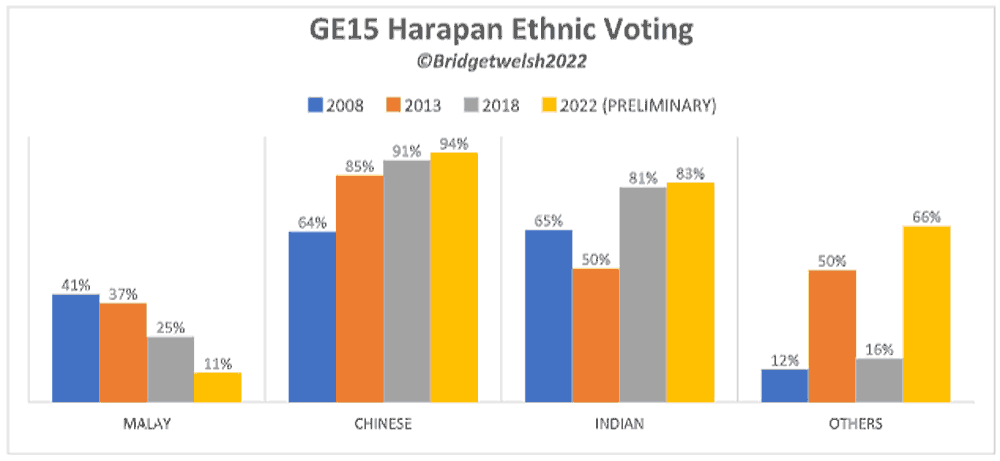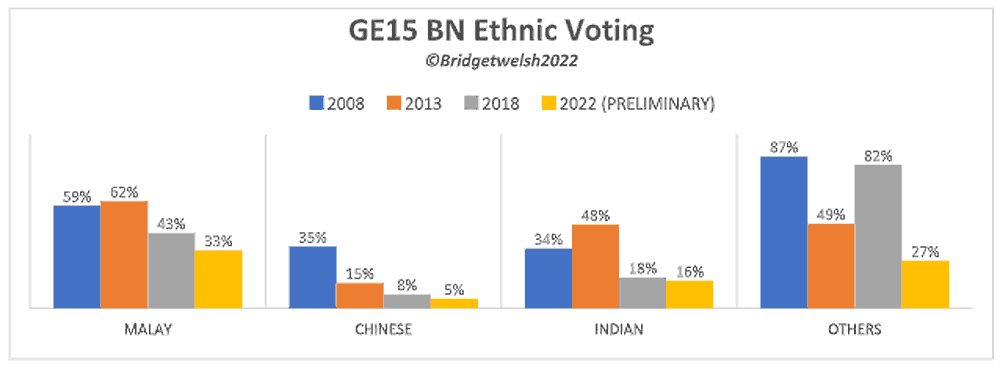As Malaysia looks toward its new government of former political challengers Pakatan Harapan and BN cooperating, with GPS supporting (in a role that is not yet finalised), it is important to analyse the GE15 election results.
This article presents a preliminary analysis of one dimension of voting – support by ethnicity. It focuses only on Peninsular Malaysia and draws estimates from macro data at the seat level, rather than more granular polling stations. A richer, more robust (and inclusive of Borneo) analysis will follow.
The preliminary findings show the importance of cooperation across coalitions, as BN and Harapan combined, bring to the table broad representation. Both Harapan and PN had deficits in representing all groups across communities.
Rising salience of ethnic voting
Malaysians vote for many reasons, but the dominant pattern of framing and analysing voting has been ethnicity. This is in part because campaigns are mobilised along these lines. While ethnicity only explained 40 percent of voting patterns in 2018, ethnicity has more strongly correlated with voting since the Malacca 2021 polls.
This is due, in part, to the greater use of identity politics to mobilise voters, which also occurred in GE15. Not only are voters engaged through ethnic frames, but they vote increasingly along ethnic lines.

This is not to discount other analytical lenses – generation, gender, class, urban-rural and region, to name a few. Attention to these patterns will follow, although it will take some time to complete the analytical work. Voting in Malaysia should not be seen mono-dimensionally, despite the explanatory lens of ethnicity.
As with all analyses, there is a need to caveat the findings. These are estimates. The analysis is also at the macro level, so there is less accuracy than using local polling station data. Here are the findings:
Perikatan Nasional
The Muhyiddin Yassin-led PN coalition won the majority of the support of the Malay electorate in Peninsular Malaysia, an estimated 54 percent.
This was an increase from the support of PAS in 2018 of 32 percent. It is also an increase in support from both Malacca and Johor polls, reflecting the well-organised campaign of PN.

Yet, PN did not secure any meaningful share of support from non-Malays, an estimated support of 0.05 percent for both communities in 2022.
In effect, PN was a coalition only supported by Malays, with the exception of an estimated 5 percent of support from other communities, mostly Orang Asli.
Pakatan Harapan
Harapan received lower Malay support in GE15, from an estimated 25 percent in 2018 to an estimated 11 percent in 2022. This estimated level of support is similar to levels of support in the Johor polls.
Importantly, this is an overall Peninsular Malaysia estimate, so in many individual seats, levels would be higher (or lower).
Cooperating with BN in government has increased the Malay electorate support base of the new government, as shown below.

Harapan’s estimated support of non-Malays reached estimated record highs, an estimated 94 percent of Chinese and an estimated 83 percent of Indians.
This can be explained in part by the salience of ethnic mobilisation in the campaign, which influences all communities.
BN
BN lost an estimated 10 percent of support among Malays in GE15, which accounts for its significant loss in seats. It won an estimated 33 percent of Malay support in GE15, down from an estimated 43 percent in GE14. BN also lost an estimated 3 percent of support among Chinese and an estimated 2 percent of Indian voters as well, although modestly.
BN’s loss of support was across communities, but this coalition still retained some support in all communities, although minimal among the Chinese.

These preliminary findings show two important patterns – ethnic polarisation of voting among the two main coalitions Harapan and PN, which in part also reflected the dynamics in the campaign.
Second, that BN’s contribution is to strengthen the breadth of overall representation across communities in Peninsular Malaysia.
These patterns, however, also raise questions that call for further analysis, specifically how socio-economic conditions impacted voting, and, even more important, call on leaders across Malaysia to work to bridge the divides across communities. - Mkini
BRIDGET WELSH is an honorary research associate of the University of Nottingham, Malaysia’s Asia Research Institute (Unari). She is also a senior research associate at the Hu Fu Centre for East Asia Democratic Studies and a senior associate fellow of The Habibie Centre. Her writings can be found at bridgetwelsh.com. Check out her Kerusi Panas podcast series.
The views expressed here are those of the author/contributor and do not necessarily represent the views of MMKtT.




No comments:
Post a Comment
Note: Only a member of this blog may post a comment.